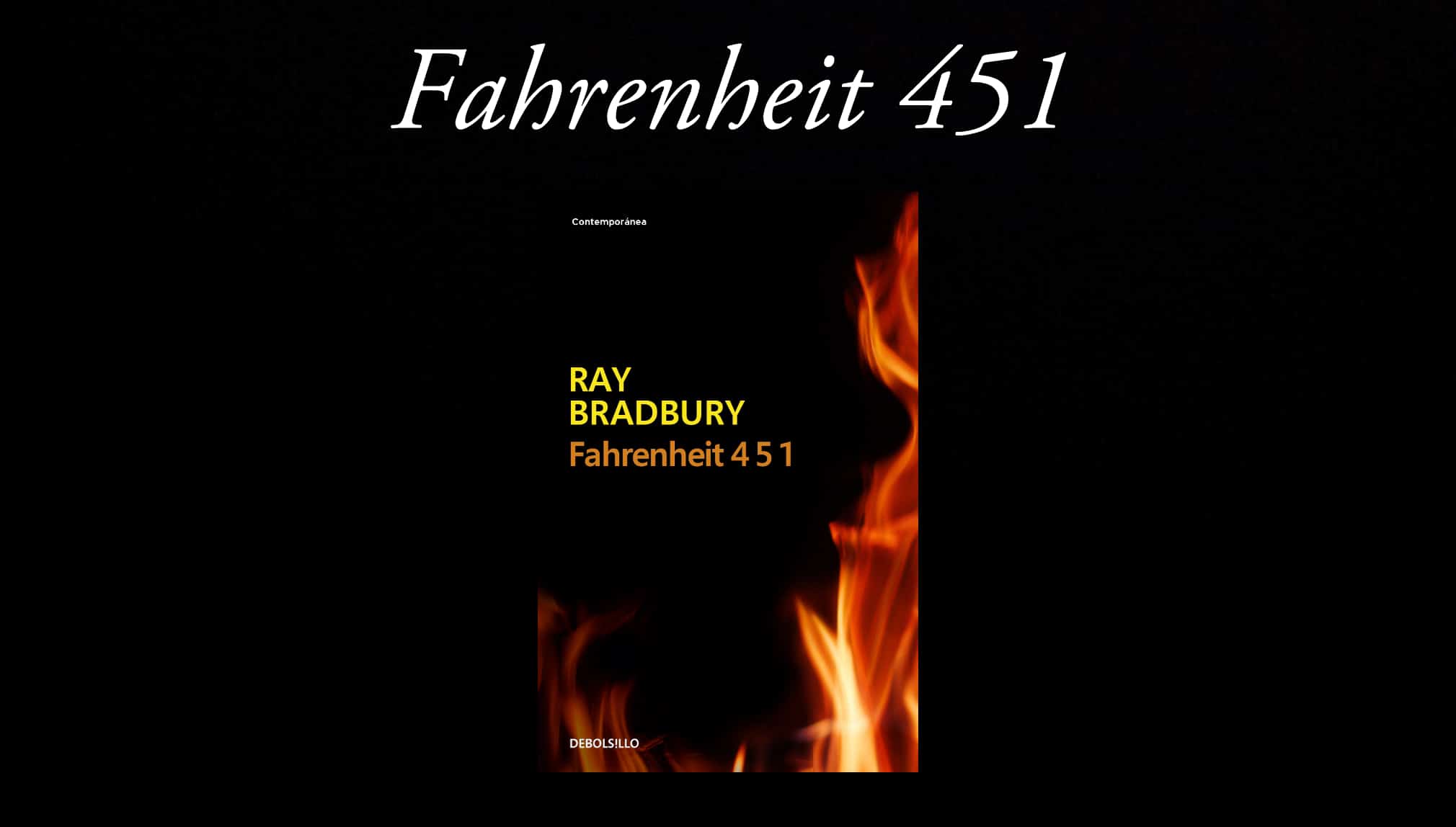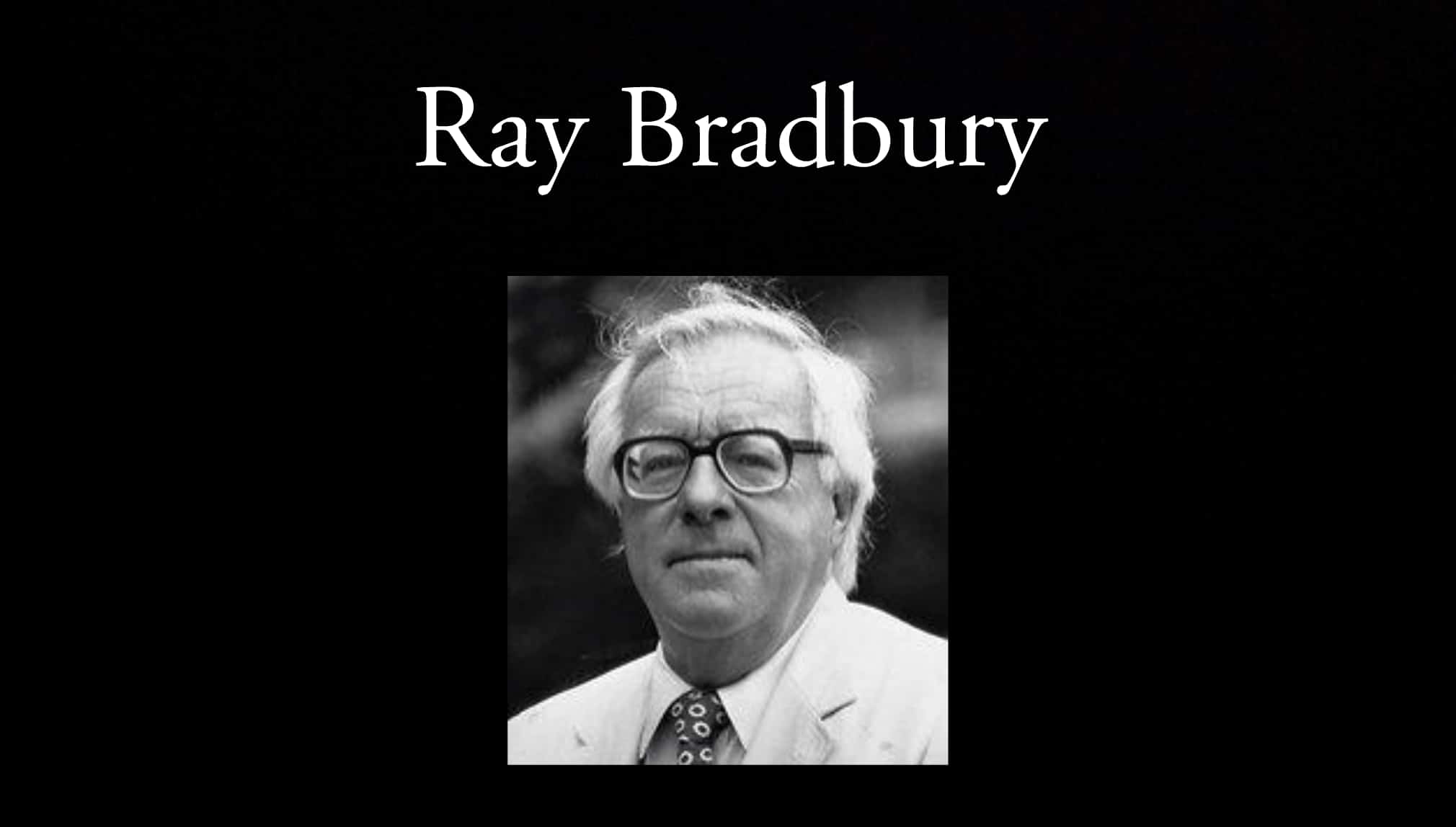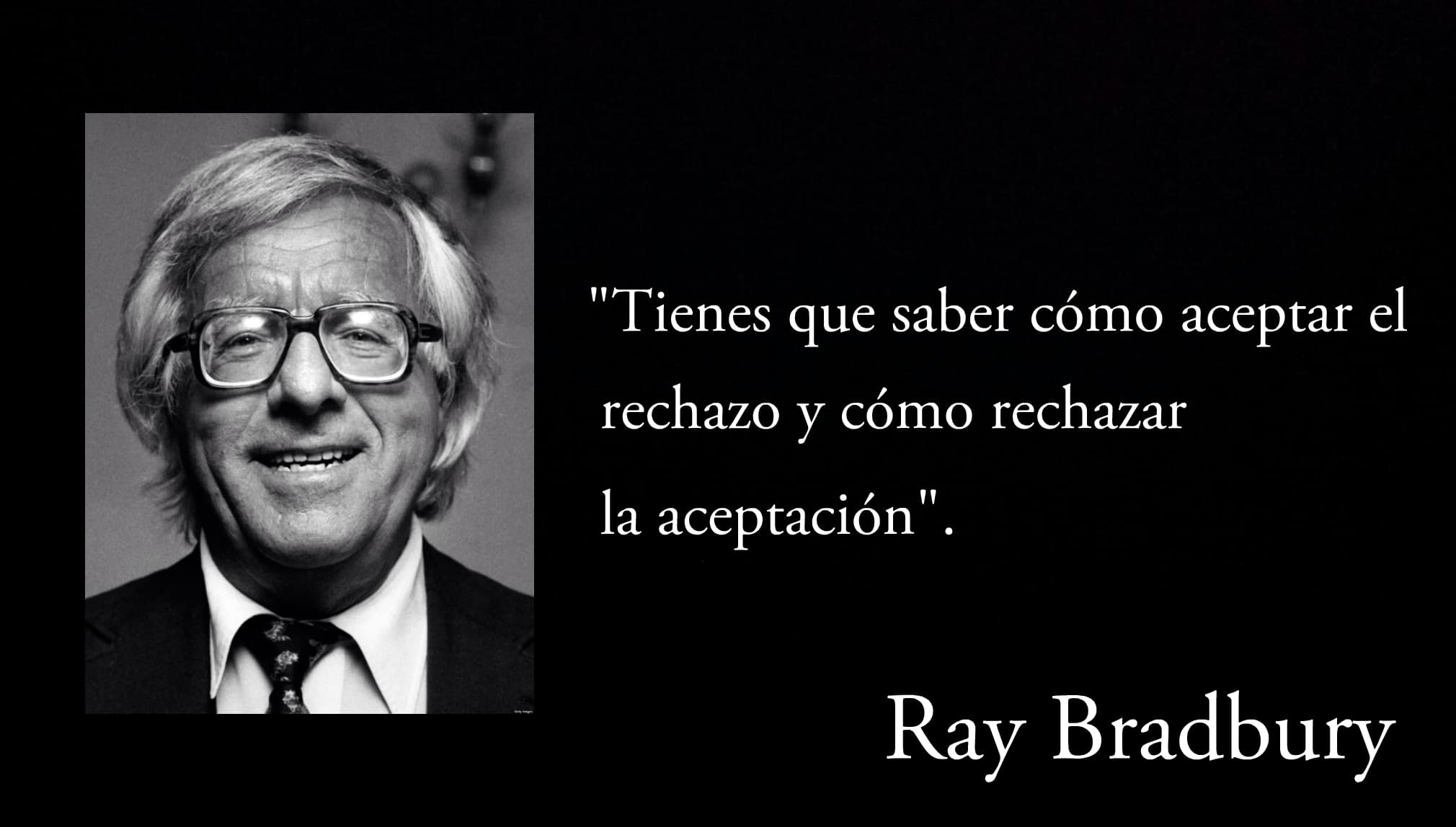
Fahrenheit 451.
"Because reading prevents you from being naively happy and in Montag's country you have to be happy by force ..." that line on the back cover of Fahrenheit 451 It perfectly frames the masterful dystopia created by Ray Bradbury. It is a story loaded with horrendous scenes, representative at a glance of an apocalyptic future that is less fictional every day. It means, therefore, an explicit warning about the massification of "content for idiots".
The writer describes a nation where happiness is not a state of mind, rather it is a decree inserted in the minds flimsy through television, mainly. Therefore, reading is completely prohibited. Discerning, giving opinions and forming your own criteria are unacceptable behaviors that must be eradicated as soon as possible in order to avoid the spread of this dangerous behavior. It is one of the best works of Ray Bradbury taken to the cinema.
About the Author
Ray Bradbury He was born in Waukegan, Illinois, United States, on August 22, 1920. During his childhood and adolescence he was very prone to nightmares, however, he took advantage of many of those traumatic images in his later works. The Great Depression forced his family to move to Los Angeles, where he graduated from high school.
Despite not continuing with formal studies, in 1943 he was recognized as a professional writer due to his persistence in the craft and a phenomenal self-taught ability. The decade of the 50s would come to be a period of consecration after the publication of Martian Chronicles (1950) The illustrated man (1951) and Fahrenheit 451 (1953), titles acclaimed by literary criticism.
Bradbury also ventured into the world of poetry, as well as writing essays and scripts for television. The most frequent themes of his work turned out to be very visionary, almost always related to questions about the culture of developed countries, totalitarianism, censorship, atomic wars, fascism and technological dependence.
His style mixed fantasy in a unique way, the horror, the poetic and the grotesque. Likewise, defiant attitudes towards oppression are constant topics along with the fear of death or their intolerant position towards racism and xenophobia. Ray Bradbury died on July 5, 1912.
Fahrenheit 451 Synopsis
“There was a silence gathered around that bonfire and the silence was in the faces of the men, and the time was there, long enough to sit by the moldy path under the trees, with the world and turn it with your eyes , as if a piece of steel that those men were shaping were fastened in the center of the fire. It wasn't just the fire that was different. So was the silence. Montag moved into that special silence, related to everything in the world. "
The Fire Makers and Guy Montag
"It was great to burn." Fahrenheit 451 refers to the degrees of temperature at which paper and texts burn. Guy Montag, the protagonist, also has the number 451 stamped on his fire helmet. Although their job is not exactly to extinguish fires, on the contrary, it is to cause them in order to destroy the books.
Bradbury introduces the surrealism of a futuristic America, where firefighters don't carry fire extinguishers, they carry flamethrowers. The single thought is a fact (accepted by the vast majority of the population) essential for the peace of the nation. Montag is satisfied with this, to such an extent that he is proud of his work.
The Power of Books and Clarisse McClellan
"Do you know why books like this are so important? Because they have quality. And what does the word quality mean? For me, it means texture. This book has pores, it has features. This book can be placed under the microscope. Through the lens he would find life, traces of the past in infinite profusion. The more pores, the more truthfully recorded details of life you can get from each sheet of paper, the more "literary" it looks. In any case, that's my definition. Revealing detail. Recent detail. Good sculptors touch life often. The mediocre just hastily run their hand over it. The bad guys rape and render her useless.
Do you realize, now, why books are hated and feared? They show the pores of the face of life. Comfy people only want full moon faces, no pores, no hair, expressionless ”.

Ray Bradbury.
He is part of a squad - Cuban G2 style - to exterminate books, as they are perceived as a source of chaos and confusion.. Until Clarisse McClellan appears, a charismatic 17-year-old passionate about nature and dissatisfied with the status quo of her environment. She sows "the germ of doubt" in Guy's brain, which grows fueled by a series of disturbing events.
An unexpected suicide, two shocking deaths and an unexpected change
First, Mildred, his wife tries to commit suicide by ingesting a lot of sleeping pills. Later, he learns about an old lady who had hidden literature and preferred to be burned along with her books. Finally, Clarisse's fatal car accident plunges Montag into a deep depression ... after all the deaths, the stolen and hidden books become his only consolation.
Awakening
Once Guy begins to read in secret, he will never think the same way again. Questions about the premises of the supposed happy society under the New Order regime become more frequent. Brainwashing (subliminal and persistent on television) is no longer completely effective.
Beatty
When Montag is absent from work, Beatty, the director of the fire department, goes to visit him at his home and assigns him 24 hours to carry out the scrutiny of the stolen books in order to find out if they have any content of interest. After the deadline, Guy must deliver the books and incinerate them. The reading is overwhelming, so Montag enlists the help of his partner Faber.
Unexpected twist
In fact, Beatty despises literature. He believes that the texts are harmful and morbid, worthy of being destroyed. Meanwhile, an alert is triggered from Montag's house, Mildred flees in a taxi ... his wife has betrayed him. Then, the fire chief shows up on the scene and demands that Guy burn his own house with the books.
Montag is arrested at the scene while receiving excruciating scolding from Beatty, to the point, Guy spins his flamethrower, sets his superior on fire, and hits his teammates before fleeing. The persecution becomes a televised event. However, Montag manages to elude the sniffer hounds by donning Faber's clothes and sneaking down a river.
Montag, the fugitive, and the rebels
A fugitive Montag comes to the tracks of an abandoned train. There he gets "the people of the book", a band of rebellious intellectuals led by Granger. They are a kind of guerrilla defender of literature dedicated to the mission of memorizing the great works of humanity.
Impersonation for calm
The New Order must keep up appearances. In replacement of the late Montag, the police show on television the capture of a poor wretch who had been previously booked by the system. At that moment, Montag finishes understanding the war in the shadows unleashed between the established power and the defenders of freedom of information.
The attack on the rebels
Once integrated into the group, Guy is commissioned to memorize the Book of Ecclesiastes. In an unexpected turn of events, the New Order decides to bombard the city with the aim of devastating the rebels regardless of the thousands of innocent dead. In the end, Montag along with his comrades search for the survivors among the ruins to start rebuilding civilization.
Universality of the work
Literature is power, and the submitter must destroy it if he wishes to rule
Fahrenheit 451 it goes back, very deliberately, to the dark ages experienced in Greece after the invasion of the Dorians and the destruction of all written material and the death of their scribes in the XNUMXth century to. C .; in the same way, it makes the reader go back to the days of the burning of the Library of Alexandria to give way to the 2003st century BC. C., or to the present century with the looting and destruction of invaluable archaeological material in Iraq during the XNUMX invasions.
The book leads us to every possible disaster that involves the end of the arts in favor of the decline of critical thinking. Slavery does not seek more than that: to silence hearts by force.
Impact of TV after World War II
After World War II, the rebuilding of the developed world brought with it the expansion of television entertainment. But few people took seriously the warnings of many intellectuals about declining reading habits to the detriment of television. In addition, the artifact went from being a powerful tool for political dissemination.
While literacy rates tend to be very high in first world and developing countries, The emergence of "the silly box" as an essential household item was causing the progressive appearance of "functional illiterates." That is, it went from having thinking people to having beings with zero reading comprehension, incapable of carrying out deep analysis of their environment, easy to manipulate and control.

Quote by Ray Bradbury.
Bread and Circus
The “bread and circus” strategies might seem like the Roman Empire, but they have never disappeared from Earth. During the second half of the twentieth century, political leaders around the world used television to a greater or lesser extent to mask the perception of the population, favor the official message and perpetuate themselves in power. Induced ignorance and conformist naivety are the order of the day.
The implicit reflection on Fahrenheit 451 it has an everlasting validity: knowledge is power. If at the time of writing this book, one of the inspirational factors was the appearance of the television as an indispensable household appliance, what would be the author's opinion in the current digitized context full of reality shows, fake news, stupid videos going viral and misinformation on social media?